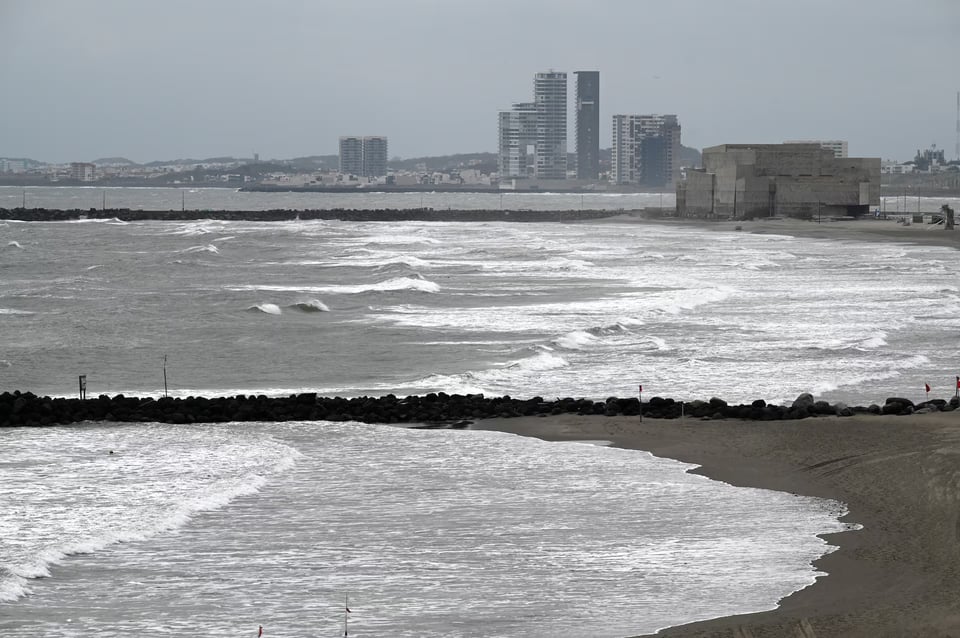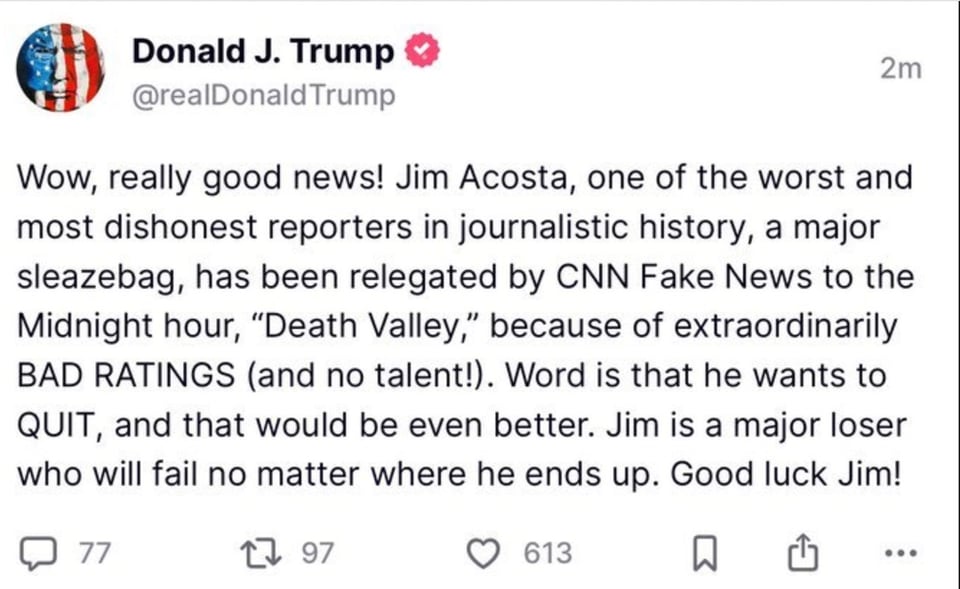Wednesday, January 29, 2025. Annette’s News Roundup.
Opportunities for activism.
Do you own a Tesla or Tesla stock?
Maybe it is time to reconsider, even if you are not a Pole.
Poland urges Tesla boycott after Musk’s call to ‘move past’ Nazi guilt
“There is no justification for any reasonable Pole to continue purchasing Teslas,” says minister Sławomir Nitras.

“A serious and strong response is necessary, including a consumer boycott,” Sławomir Nitras told Polish media.
Outrage over Elon Musk’s support of the far-right Alternative for Germany (AfD) party and call for Germany to “move past” its Nazi history could start impacting his financial interests after Polish Tourism Minister Sławomir Nitras called for a Tesla boycott.
“There is no justification for any reasonable Pole to continue purchasing Teslas. A serious and strong response is necessary, including a consumer boycott,” Nitras told Polish media.
Musk is a key advisor to U.S. President Donald Trump and heads up a new department in the administration focused on increasing government efficiency. But he has maintained his status as CEO of EV company Tesla and his various other companies like SpaceX and social media platform X.
The bulk of his wealth, however, comes from Tesla stock.
On Saturday, Musk virtually joined an official election campaign for the AfD, giving a speech in which he said Germany “focuses too much on past guilt,” endorsing a taboo stance that has been a rallying cry from the far-right for Germans to move on from Erinnerungskultur or its “culture of remembrance.”
“Children should not be guilty of the sins of their parents or even their great grandparents,” Musk said ahead of Germany’s Feb. 23 election.
His remarks came two days before the 80th anniversary of the the liberation of the Nazi camp at Auschwitz.
They have caused particular offense in Poland — which was the first country to be invaded by Adolf Hitler’s forces at the start of World War II. Poland lost around 6 million people in the war — half of them Jews, many of whom died in Nazi camps like Auschwitz that were sited on its territory. Millions more were rounded up and put to work as forced laborers.
Musk will be addressing financial analysts on Wednesday in the U.S. during his first Tesla earnings call since Trump took office.(Politico)
One more thing.
Bill Gates fights Musk too.
Gates has fired a new round. In an interview with The Times of London, the Microsoft co-founder accused Musk of using his money and social media platform to “destabilize the political situations in countries.” Musk has increasingly inserted himself into European politics, trolling elected leaders and embracing deeply contentious figures and hard-right political parties in Britain and Germany.
Alice Thomson of The Times of London writes:
He’s particularly riled by Musk’s put-downs of democratically elected leaders and his discovery of the hard right. “You want to promote the right wing but say Nigel Farage is not right-wing enough … I mean, this is insane.”
“If someone is supersmart, and he is, they should think how they can help out,” Gates added. “But this is populist stirring.”
The Microsoft co-founder added that he believed democracies needed to be on guard:
“Other countries maybe should adopt safeguards to make sure superrich foreigners aren’t distorting their elections. It’s difficult to understand why someone who has a car factory in both China and in Germany, whose rocket business is ultra-dependent on relationships with sovereign nations and who is busy cutting $2 trillion in U.S. government expenses and running five companies, is obsessing about this grooming story in the U.K. I’m like, what?” (The DealBook)
Another opportunity for activism.
Google Maps to rename 'Gulf of Mexico' to 'Gulf of America' for US users.

Waves crash on the shore of the Gulf of Mexico, after newly sworn-in U.S. President Donald Trump signed an executive order to change the name of the Gulf of Mexico to the Gulf of America, in Boca del Rio, Veracruz state, Mexico January 21, 2025.
WASHINGTON, Jan 27 (Reuters) - Google Maps will change the name of "Gulf of Mexico" to "Gulf of America" once it is officially updated in the U.S. Geographic Names System, Google said in an X post on Monday.
The change will be visible in the U.S., but the name will remain "Gulf of Mexico" in Mexico. Outside of the two countries, users will see both names on Google Maps.
The Trump administration's Interior Department said on Friday it had officially changed the name of the Gulf of Mexico to the Gulf of America, and the Alaskan peak Denali, the tallest mountain in North America, to Mount McKinley.(Reuters)
—-
To contact Sundar Pichai and protest his decision, send an email to sundar@google.com. If you want to call Sundar Pichai try calling on +16503368791. Tell him you will remove Chrome as your web browser and use Bing as your search engine if he insists on groveling to Trump and supporting his imperialism.
Yesterday, two prominent members of the press spoke out on why they left their positions.
Jim Acosta, CNN.
Watch the CNN anchor speak the truth about Trump.👇
The White House Beast, of course, didn’t miss an opportunity to rant against an admired journalist.

Paul Krugman, Nobel Prize winning economist, explained why he left the New York Times.
Departing the New York Times by Paul Krugman.
I left to stay true to my byline

As many people reading this know, last month I retired from my position as an opinion writer at the New York Times—a job I had done for 25 years. Despite the encomiums issued by the Times, it was not a happy departure. If you check out my Substack, you will see that I have by no means run out of energy or topics to write about. But from my perspective, the nature of my relationship with the Times had degenerated to a point where I couldn’t stay.
Charles Kaiser has written a fair-minded articlein the Columbia Journalism Review about my departure. What I want to do in this post is add more context. Let’s be clear: I am not planning to have a running feud with the Times: I came, I saw, I felt I had to leave, and I moved on.
But I believe that the story of why I left says something important about the current state of legacy journalism.
The background: until 2017 or so, I felt extremely happy with my role at the Times, for a couple of reasons.
One, I felt that I had finally cracked the code of opinion column-writing. When the Times hired me at the end of 1999, I was an economics professor who wrote occasionally for a broader audience. And crafting 800-word plain-English essays for readers with no background in economics is, shall we say, a bit different from writing 5000-word academic journal articles full of equations and diagrams for a small professional community. For a while, I struggled with the transition.
But eventually I figured it out. I actually took pleasure in the craftsmanship, in boiling an argument down to its essentials, expressing it in ordinary language, and making it interesting. Furthermore, I believe that my writing affected the national discourse, especially over issues such as George W. Bush’s attempt to privatize Social Security, the march to the Affordable Care Act (despite Obama’s initial reluctance), and the unjustified fiscal panic of the early 2010s.
During my first 24 years at the Times, from 2000 to 2024, I faced very few editorial constraints on how and what I wrote. For most of that period my draft would go straight to a copy editor, who would sometimes suggest that I make some changes — for example, softening an assertion that arguably went beyond provable facts, or redrafting a passage the editor didn’t quite understand, and which readers probably wouldn’t either. But the editing was very light; over the years several copy editors jokingly complained that I wasn’t giving them anything to do, because I came in at length, with clean writing and with back-up for all factual assertions.
This light-touch editing prevailed even when I took positions that made Times leadership very nervous. My early and repeated criticisms of Bush’s push to invade Iraq led to several tense meetings with management. In those meetings, I was urged to tone it down. Yet the columns themselves were published as I wrote them. And in the end, I believe the Times — which eventually apologized for its role in promoting the war — was glad that I had taken an anti-invasion stand. I believe that it was my finest hour.
So I was dismayed to find out this past year, when the current Times editors and I began to discuss our differences, that current management and top editors appear to have been completely unaware of this important bit of the paper’s history and my role in it.
Two, previous Times management and editors had allowed me to engage in the higher-level economic debates of the time. The aftermath of the 2008 financial crisis led to a great flowering of economics blogs. Important, sophisticated debates about the causes of the crisis and the policy response were taking place more or less in real time. I was able to be an active part of those debates, because I had an economics blog of my own, under the Times umbrella but separate from the column. The blog, unedited, was both more technical — sometimes much more technical — and looser than the column.
Then, step by step, all the things that made writing at the Times worthwhile for me were taken away. The Times eliminated the blog at the end of 2017. Here’s my last substantive blog post, which gives a good idea of the kind of thing I was no longer able to do once it was eliminated.
For a while I tried to make up for the loss of the blog with threads on Twitter. But even before Elon Musk Nazified the site, tweet threads were an awkward, inferior substitute for blog posts. So in 2021 I opened a Substack account, as a place to put technical material I couldn’t publish in the Times. Times management became very upset. When I explained to them that I really, really needed an outlet where I could publish more analytical writing with charts etc., they agreed to allow me to have a Times newsletter (twice a week), where I could publish the kind of work I had previously posted on my blog.
In September 2024 my newsletter was suddenly suspended by the Times. The only reason I was given was “a problem of cadence”: according to the Times, I was writing too often. I don’t know why this was considered a problem, since my newsletter was never intended to be published as part of the regular paper. Moreover, it had proved to be popular with a number of readers.
Also in 2024, the editing of my regular columns went from light touch to extremely intrusive. I went from one level of editing to three, with an immediate editor and his superior both weighing in on the column, and sometimes doing substantial rewrites before it went to copy. These rewrites almost invariably involved toning down, introducing unnecessary qualifiers, and, as I saw it, false equivalence. I would rewrite the rewrites to restore the essence of my original argument. But as I told Charles Kaiser, I began to feel that I was putting more effort—especially emotional energy—into fixing editorial damage than I was into writing the original articles. And the end result of the back and forth often felt flat and colorless.
One more thing: I faced attempts from others to dictate what I could (and could not) write about, usually in the form, “You’ve already written about that,” as if it never takes more than one column to effectively cover a subject. If that had been the rule during my earlier tenure, I never would have been able to press the case for Obamacare, or against Social Security privatization, and—most alarmingly—against the Iraq invasion. Moreover, all Times opinion writers were banned from engaging in any kind of media criticism. Hardly the kind of rule that would allow an opinion writer to state, “we are being lied into war.”
I felt that my byline was being used to create a storyline that was no longer mine. So I left.
That’s my story. What are the broader implications?
“Words,” John Maynard Keynes once wrote, “ought to be a little wild, for they are the assault of thoughts on the unthinking.” That was always my attitude toward opinion writing. Newspaper columns should be controversial, rubbing some people the wrong way, because the main point is to get people to rethink their assumptions. I used to say, only half-jokingly, that if a column didn’t generate a large amount of hate mail, that meant that I had wasted the space.
Yet what I felt during my final year at the Times was a push toward blandness, toward avoiding saying anything too directly in a way that might get some people (particularly on the right) riled up. I guess my question is, if those are the ground rules, why even bother having an opinion section?
Maybe there was a time when readers would sit still for sober, dull opinion pieces — history’s most boring headline, “Worthwhile Canadian Initiative,” was the title of a Times op-ed — because they were seen as representing the views of The Establishment. And I have the feeling that Times management still thinks it’s living in that world. But in today’s wide-open information (and misinformation) environment, boring writing just vanishes without a trace.
On a somewhat different issue, it became clear to me that the management I was dealing with didn’t understand the difference between having an opinion and having an informed, factually sourced opinion. When the newsletter was canceled, I tried to point out that I was almost the only regular opinion writer doing policy. Their response was to point to other writers who often expressed views about policy, economic and otherwise. I tried in vain to explain that there’s a difference between having opinions about economics and knowing how to read C.B.O. analyses and recent research papers. It all fell on deaf ears.
So that’s the story of my departure from the Times. Despite the difficulties of the last year, I remain deeply grateful to the Times for hiring me and giving me decades of freedom to express my views to such a large audience. And I feel sorry about abandoning loyal readers who still rely on legacy media and who may not follow me to Substack. But my situation had become intolerable, and I haven’t felt a moment’s regret over the new direction and recovering my freedom. (The Contrarian).
Ambassador Caroline Kennedy speaks out against her cousin.
Watch her passionate plea to the Senate not to confirm Rober Kennedy Jr. as Secretary of Health and Human Services.
She calls him a predator and says he put baby chicks and mice in a blender to feed to his predator birds. She also said his kids were fully vaxxed, all while telling the susceptible not to vaxx their own kids. 👇
Another J6 Pardoned Criminal is being sought, this time for an earlier crime.
3. Yes, keep count.
Houston man pardoned for Jan. 6 crimes now wanted for online solicitation of a minor.
Andrew Taake, 36, was released from a federal prison in Colorado on Jan. 20, despite a request from the Harris County DA’s Office to hold him on a pending state warrant from 2016.

Houston resident Andrew Taake, right, was sentenced to more than six years in prison for assaulting police officers with bear spray and a whip-like weapon during the U.S. Capitol insurrection on Jan. 6, 2021.
A Houston man who was pardoned by President Donald Trump after being convicted of assaulting police officers during the Jan. 6, 2021, insurrection at the U.S. Capitol was released from a federal prison last week but is now wanted in Harris County on a pre-existing charge of online solicitation of a minor.
Andrew Taake, 36, was sentenced to six years in prison in June 2024 after pleading guilty to assaulting officers with bear spray and a whip-like weapon during the attack in Washington D.C. Taake was released from a federal prison in Florence, Colorado, on Jan. 20, after he and more than 1,500 others involved in the insurrection were pardoned by Trump on his first day in office.
At the end Trump’s first stint as president in 2021, a crowd of his supporters stormed the Capitol and disrupted a joint session of the U.S. Congress that convened to certify the 2020 presidential election results in favor of Joe Biden. Taake pleaded guilty for his role in the attack in December 2023.
On Monday, Harris County District Attorney Sean Teare confirmed in a statement to Houston Public Media that Taake is still wanted under a pending state warrant for the alleged online solicitation of a minor in 2016.
Teare said his office had asked federal authorities to hold Taake in Colorado, due to his pending warrant in Texas, but that Taake was still released despite the DA's office faxing a copy of the warrant to the Federal Bureau of Prisons on Jan. 15, five days before he was pardoned.
The DA's office is now working to locate and arrest Taake, Teare said.
"Re-arresting individuals, like Taake, who were released with pending state warrants, will require significant resources," Teare said in his statement. "Know that we are already in the process of tracking Taake down, as he must answer for [the] 2016 charge of soliciting a minor online."
According to county court documents, Taake is accused of pursuing a sexual relationship with an individual who he knew to be under the age of 17 via an online messaging service. The case against Taake was still pending in Harris County when he was arrested by the FBI in July 2021 for his actions on Jan. 6.
The Federal Bureau of Prisons said Taake was released on Jan. 20 in compliance with Trump’s pardon but declined to comment on why he was not held on the unrelated warrant in Texas. (Houston Public Media).
The Trump freeze.
One. It is paused.
Two. It has aroused the Democrats.
The Trump administration had ordered federal agencies to subject hundreds of grant programs that account for trillions of dollars in spending to several ideological litmus tests, including whether the programs provide funding or support for abortion, “illegal aliens” or diversity, equity and inclusion initiatives.
While that review is continuing, the budget office directed federal agencies to pause any programs that could violate a series of executive orders related to those areas issued by Mr. Trump. (New York Times)
A judge took action and blocked the freeze.
Judge blocks Trump’s spending freeze
U.S. District Judge Loren AliKhan blocked the Trump administration from implementing it for now.
A federal judge has halted President Donald Trump’s freeze on federal aid programs, ruling that the courts need more time to consider the potentially far-reaching ramifications of his order.
Minutes before the directive from Trump’s budget office was to take effect Tuesday, U.S. District Judge Loren AliKhan blocked the Trump administration from implementing it for now.

Judge Loren AliKhan.
AliKhan’s order will expire Feb. 3 at 5 p.m. The Trump administration cannot suspend disbursement of any congressionally appropriated funds until then. The judge described the move as a “brief administrative stay” intended to maintain the status quo while further litigation plays out.
“I think there is the specter of irreparable harm,” said AliKhan, an appointee of President Joe Biden.
The ruling is a win for nonprofit and public health groups who filed a lawsuit earlier Tuesday challenging the broad spending freeze the Trump’s budget office ordered overnight. Those groups said even a brief implementation of the freeze could cause devastating outcomes for people who rely on federal funds for services, as well as the workers who provide them.
The nonprofits also argued the order from the Office of Management and Budget intrudes on First Amendment rights by seeking to block funding for groups that engage in “DEI programs” or promote “Gender Ideology Extremism” — concepts that Trump targeted in executive orders he issued on the first day in office last week.
“They are going to lose funding in 10 minutes because they support transgender equality instead of supporting something that the administration finds more palatable,” said Jessica Morton, an attorney for the National Council of Nonprofits and other groups.
During a short hearing held by videoconference, Justice Department attorney Daniel Schwei argued that the groups had failed to show that they needed an immediate halt to the order, which had been set to take effect at 5 p.m. Tuesday. He said additional guidance offered by the Trump administration should alleviate concerns about the OMB directive cutting off essential funding.
“They request sweeping relief … not tethered to any identified grant programs,” Schwei said. “It would be appropriate to allow these issues to be addressed on a more orderly timeframe … I think it would be preemptive for the court to order relief just based on the suspicion that there might be some harm at some point.”
The lawsuit from the nonprofit and public health groups is in Washington, D.C., federal court. Also on Tuesday, Democratic state attorneys general filed a separate federal lawsuit in Rhode Island challenging the spending freeze. (Politico).
Democrats find a voice in opposition to Trump’s funding halt
Democrats offered their first show of unified opposition to President Trump on Tuesday, as elected officials across the country vowed to fight against a White House-ordered pause in grants, loans and other federal financial assistance.
Since Mr. Trump won the election in November, Democrats have debated how stridently to oppose the president and his administration. Some argued for the kind of wholesale defiance that characterized their response during Mr. Trump’s first term. Others, including those from places where Mr. Trump gained support in 2024, pushed to find areas of cooperation on issues like immigration and inflation.
But on Tuesday, the earliest sketches of a new playbook emerged, as Democrats across the ideological spectrum accused Mr. Trump of preying on the nation’s most vulnerable citizens by denying government aid for struggling families and the elderly and defunding police departments, transportation systems and hospitals.
“Donald Trump’s administration is lying to you,” Gov. JB Pritzker of Illinois said at a news conference Tuesday afternoon in Chicago. “What the president is trying to do is illegal.”
Democratic governors, attorneys general and mayors raised alarms about halting funding to programs that would be harmed, including child-care centers and food assistance, and pointed angrily to the sudden failure of the online portal through which state Medicaid departments receive federal funding.
“I will not stand by while the president attempts to disrupt vital programs that feed our kids, provide medical care to our families and support housing and education in our communities,” said Rob Bonta, the California attorney general, who helped organize a lawsuit to block the order that was quickly joined by two dozen Democratic attorneys general.
By early evening, a federal judge in Washington temporarily blocked the Trump administration’s order freezing the disbursement of the federal funds. By then, Democrats in Washington and in city halls across the country had heard from constituents up in arms about the sudden loss of promised federal funding — concerns that their leaders eagerly relayed.
“When I get emails from young people in college saying they can’t access their portal to their financial aid — come on, man, that’s exhausting,” said Mayor Randall Woodfin of Birmingham, Ala. “This moment is going to require more of an organized effort from everybody.”
In the Senate, Democrats who had approved Mr. Trump’s cabinet nominees to lead the Treasury and homeland security departments said they would now vote against any subsequent nominees.
Even Democrats, like Senator Chris Coons of Delaware, who are predisposed to seek bipartisan cooperation and who rarely channel the type of emotional response Mr. Trump has sparked among the party’s grass roots, said that the administration’s attempt to halt funding represented an alarming development that would have to be addressed before other business could take place.
“President Trump has tried to defy Congress’s constitutional appropriations role,” Mr. Coons said. “He cannot defy our advice-and-consent role.”
Still, a sudden surge of opposition in reaction to the order to freeze federal funds reduced the number of Democratic votes confirming Sean Duffy as Mr. Trump’s transportation secretary. All Senate Democrats had voted to advance his nomination, but 22 voted against him in the final round.
Representative Hakeem Jeffries of New York, the House minority leader, summoned Democratic House members to an “emergency” meeting set for Wednesday afternoon to detail their “counteroffensive” strategy.
A memo circulated by the House Democratic leaders on Tuesday morning described the pause, ordered by the White House Office of Management and Budget, as an “illegal scheme to choke off virtually all federal funding for basic services” and urged their members to highlight the impact.
Still, the newly vocal opposition was not enough for some in the party’s liberal grass roots. Indivisible, a progressive organization that started during Mr. Trump’s first administration, called on Democratic senators to grind all business to a halt, and attacked Mr. Jeffries for moving too slowly.
“It’s not a policy memo — it’s a revolution,” said Ezra Levin, the group’s co-founder. “Don’t let it be a quiet one.” (New York Times)
Maybe something good will come out of this?👆